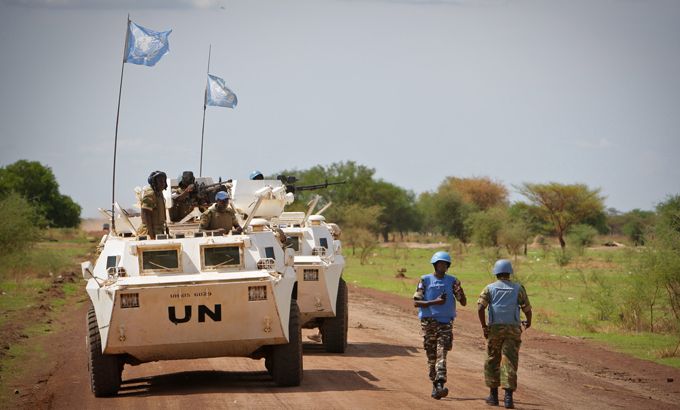
Will the two Sudans ever agree over Abyei?
As the two countries are given six more weeks to reach agreement on the region, we ask how the dispute can be resolved.
A new proposal by the African Union High-Level Implementation Panel on the region of Abyei, disputed by Juba and Khartoum, has been met with strong disappointment from South Sudan.
Last month, Sudan and South Sudan signed a co-operation agreement on the unsettled issues between them, but failed to agree on the border areas, including Abyei.
On Wednesday, Thabo Mbeki, the African Union (AU) chief mediator, presented the proposal, which looks at the progress reached in September’s Addis Ababa agreement between the two countries, to the African Union Peace and Security Council.
In his report, Mbeki, a former South African president, called for the extension of negotiations over Abyei for another six weeks.
|
“Given the pattern of negotiation that Khartoum has taken to the Abyei issue, it is merely delaying it .… On the territory of Abyei there is not further compromise possible. The Hague award established what the boundaries were and that’s that. On the issue of the referendum there can really be no further compromise on that.” – Douglas Johnson, an African history scholar |
Officials from South Sudan’s governing Sudan People’s Liberation Movement (SPLM) said they were surprised by the proposal and that it is not consistent with the AU roadmap and the UN resolution on the issue.
Khartoum has said that it is in favour of a political solution that could lead to the partition of the border areas, a suggestion Juba says it will never accept.
Last month’s deal between the leaders of Sudan and South Sudan came after days of negotiations in Ethiopia and included a partial agreement to resume oil exports.
It was decided that South Sudan’s stalled oil production of 350,000 barrels should resume, and that South Sudan will contribute to a fund for Sudan to compensate for losses in oil revenues.
The agreement also says, among other things, that troops must withdraw to 10 kilometres from the unmarked border. But it left the Abyei issue unresolved.
So how long will the contentious issue of Abyei remain unresolved?
To discuss this on Inside Story, with presenter Adrian Finighan, are guests: Douglas Johnson, an author and scholar on the history of northeast Africa, Sudan and South Sudan, who was also involved in the Abyei boundaries commission in 2005; and Safwat Fanos, a political analyst and head of the political science department at the University of Khartoum.
|
“The Addis Ababa deal said the future of Abyei will be settled via a referendum which will take place in October 2013 … this is a tactic to distance or postpone the discussion, settlement, negotiation in the hope that over the one year a peaceful economic, social relationship, mutual interest and common benefits will ease the tension and make the two sides more willing to make concessions.” Safwat Fanos, a political analyst |
Sticking points between Sudan and South Sudan:
- At the heart of the dispute is control of the town of Heglig in the oil-producing region of Southern Kordofan.
- To the west is Abyei, which both countries claim. Mediators want a special status for Abyei and want a referendum to decide if it belongs to Sudan or South Sudan, but who will actually get to vote is still in question. The AU says anyone with permanent resident status should qualify – a point neither side can agree on.
- On the eastern part of the border, rebels have been fighting with the Sudanese government. Each country accuses the other of supporting rebel groups on its territory.
- Thousands of people on both sides of the border face legal limbo with their citizenship still unresolved.